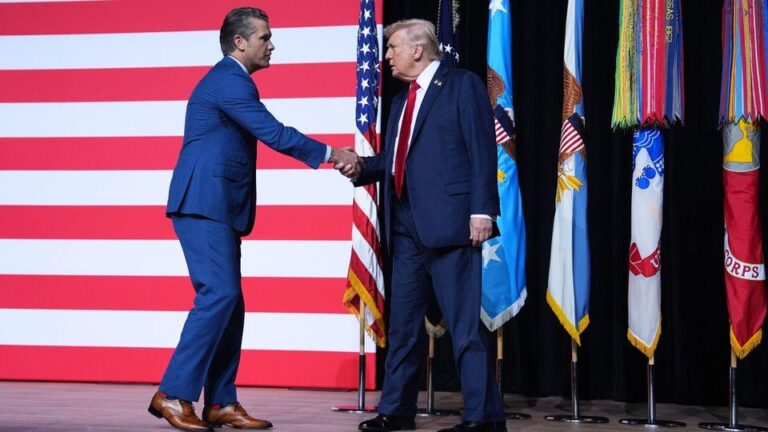As Argentina grapples with a deepening economic crisis marked by soaring inflation, mounting debt, and social unrest, speculation has emerged around the potential impact of former U.S. President Donald Trump’s involvement and economic vision. In a surprising development, Trump has expressed optimism about his ability to help stabilize Argentina’s faltering economy. This article explores whether his approach offers a viable path out of the country’s financial turmoil, or if hopes pinned on his intervention may be misplaced amidst complex domestic and global challenges.
Trump’s Economic Vision for Argentina Faces Deep Structural Challenges
Donald Trump’s proposed economic blueprint for Argentina aims to inject confidence into a market battered by hyperinflation, massive debt, and political instability. Central to his approach is a strong emphasis on deregulation, tax cuts, and invigorating foreign investment by leveraging Argentina’s vast natural resources. However, experts caution that these measures may overlook the depth of the country’s underlying fiscal and institutional weaknesses. Without addressing entrenched issues such as inefficient public spending and a lack of monetary discipline, any policy shift risks being a temporary fix rather than a sustainable recovery plan.
Moreover, the socio-political landscape presents formidable hurdles for implementing a Trump-style economic overhaul. Labor unions retain significant influence, and public sentiment is wary of austerity measures reminiscent of past IMF programs. Below is a simplified comparison between Trump’s economic priorities and Argentina’s critical challenges:
| Trump’s Economic Priorities | Argentina’s Structural Challenges |
|---|---|
| Tax Cuts to stimulate investment | High Fiscal Deficit limiting budgetary room |
| Deregulation to boost business | Bureaucratic Red Tape stifling entrepreneurship |
| Trade Deals favoring growth | Currency Instability and capital flight |
| Energy Development focus | Infrastructure Deficits needing massive investment |
- Inflation control: Critical but complicated by social resistance.
- Debt renegotiation: Essential for restoring creditworthiness.
- Social programs: Balancing austerity with public welfare.
Impact of US-Argentina Relations on Economic Recovery Prospects
The evolving dynamics between the United States and Argentina hold significant weight for Buenos Aires’ efforts to stabilize and revitalize its struggling economy. With both countries navigating complex political landscapes, the potential for enhanced cooperation could unlock vital investment opportunities and strengthen Argentina’s financial standing. In particular, strategic engagement from the U.S., whether through trade policy adjustments or financial aid packages, is viewed by many as a possible catalyst to ease the fiscal volatility that has long plagued Argentina.
Key factors influencing this relationship include:
- Trade Agreements: Expansion of export markets, especially in agriculture and technology sectors.
- Debt Restructuring: Potential U.S. support in negotiating terms with international creditors.
- Investment Flows: Encouraging American companies to increase direct investment in Argentine industries.
- Policy Alignment: Coordinating on economic reforms that enhance market confidence and fiscal discipline.
| Indicator | Current Status | U.S. Influence Potential |
|---|---|---|
| Inflation Rate | ~95% | Support for fiscal reforms |
| Foreign Direct Investment | Low and volatile | Increased due to policy incentives |
| GDP Growth Forecast | 1.5% – 2% | Could improve with bilateral trade |
Policy Recommendations for Sustainable Growth Amid Political Uncertainty
Amid the swirling vortex of political unpredictability in Argentina, adopting a multi-faceted economic strategy is imperative. Policymakers should prioritize strengthening institutional frameworks to reinforce investor confidence. This involves transparent fiscal policies, improved regulatory oversight, and an unwavering commitment to debt restructuring without default. Additionally, fostering local industries through targeted subsidies and reducing import dependency could stabilize supply chains, creating a buffer against global market shocks. Emphasizing social safety nets and inclusive growth programs will also help ease the socio-economic tensions that frequently derail reform efforts during political unrest.
Furthermore, Argentina must leverage international partnerships cautiously, ensuring that foreign investments and trade agreements align with long-term sustainability goals rather than short-term political gains. The table below outlines potential areas of focus for government action, balancing economic pragmatism with social equity:
| Policy Area | Recommended Action | Expected Impact |
|---|---|---|
| Fiscal Discipline | Implement strict budget controls | Reduced inflation & improved credit rating |
| Industrial Policy | Support small & medium enterprises | Job creation & economic diversification |
| Social Welfare | Expand targeted assistance programs | Mitigated poverty & enhanced social stability |
| Trade Strategy | Negotiate fair trade deals | Access to global markets & sustainable growth |
To Wrap It Up
As Argentina continues to grapple with soaring inflation, mounting debt, and dwindling investor confidence, hopes pinned on external political figures like Donald Trump highlight the nation’s deep economic uncertainties. While Trump’s stance and proposed policies may resonate with certain factions, the complex challenges facing Argentina require multifaceted solutions rooted in domestic reform and international cooperation. Whether his involvement can translate into tangible economic relief remains to be seen, but the coming months will be crucial in determining the country’s trajectory amidst ongoing turmoil.




